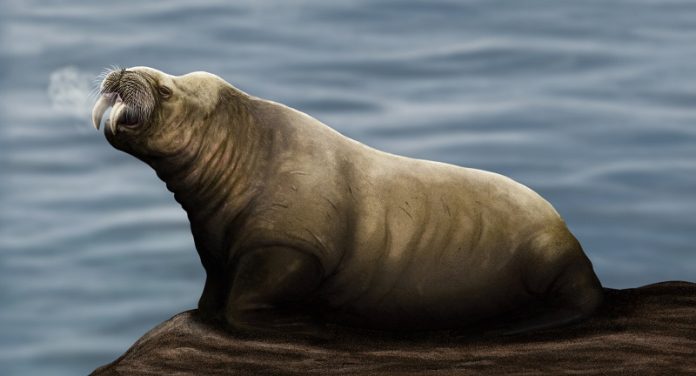
A team of paleontologists, led by Dr. Mathieu Boisville from the University of Tsukuba in Japan, has discovered a new species of extinct walrus-like mammal in the North Atlantic.
The species, named Ontocetus posti, was found in fossils from the Lower Pleistocene era in Norwich, United Kingdom, and Antwerp, Belgium.
The discovery was published in the journal PeerJ.
The fossils were initially thought to belong to a different species, Ontocetus emmonsi. However, a closer examination of the jawbones revealed unique features that set this species apart.
These features include four post-canine teeth, a larger lower canine, and a short, fused mandibular symphysis (the point where the two halves of the lower jaw meet).
These adaptations suggest that Ontocetus posti was well-suited for suction-feeding, much like the modern walrus.
The genus Ontocetus originally came from the North Pacific Ocean and spread to the Atlantic during the Mio-Pliocene transition, a period of significant change in Earth’s climate and geography.
This migration was likely aided by the Central American Seaway, a crucial oceanic passage that existed before the Isthmus of Panama closed.
As global temperatures cooled during the Late Pliocene, many marine species, including Ontocetus posti, faced extinction. This cooling period also paved the way for the emergence of the modern walrus, Odobenus rosmarus, which is well-adapted to cold environments.
The discovery of Ontocetus posti provides new insights into the evolutionary history of walruses and other marine mammals. It highlights how environmental changes over millions of years have influenced the adaptations and survival of different species. The similarities between Ontocetus posti and the modern walrus are a fascinating example of convergent evolution, where unrelated species develop similar traits due to similar environmental pressures.
This finding adds another piece to the puzzle of how marine mammals have evolved and adapted to their changing world over time.



